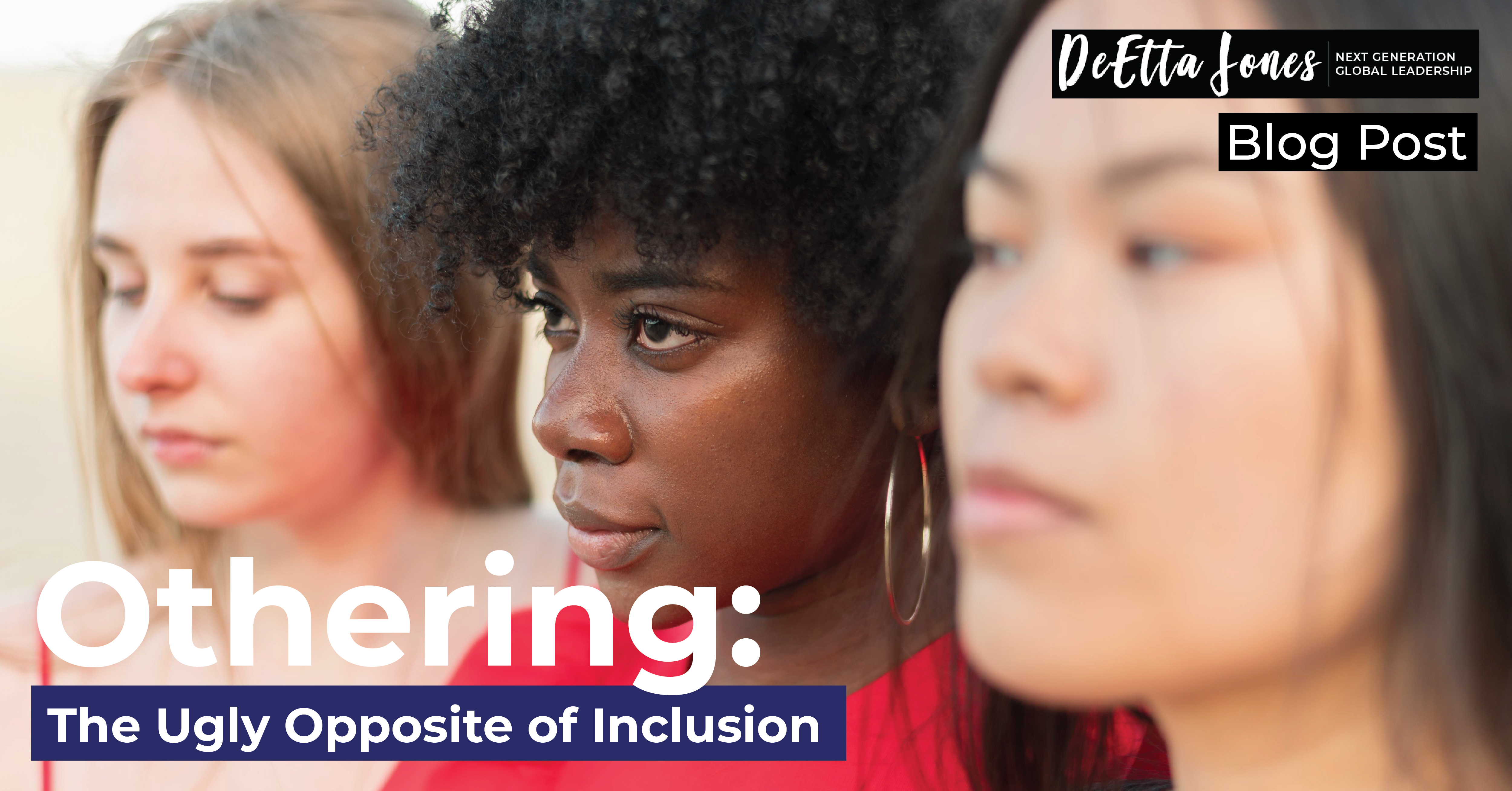Cultural competence is a personal skill set. It is the capability to shift cultural perspective and adapt behavior in recognition of cultural commonalities and differences. This competency requires an adjustment in everything - from becoming aware, to developing skills and then modifying behavior. Cultural competence requires a deep cultural self-awareness that derives from continuous education, exposure, and application of models and concepts to one's past and current experiences.
Eager to display their care for others, many people jump too quickly to the portion of the definition that focuses on either commonality or difference, placing disproportionate amounts of attention on one or the other, and skipping over the most important first step: self.
Knowing oneself–doing your own work–is vital for being an ally and for nurturing inclusive teams and workplace culture. You cannot be an ally to others if you are coming from a place of personal shame. Further, if you are ashamed of what your ancestors or members of your group did and that, solely, is fueling your desire to “fix something,” you won’t be an effective ally. If your commitment is fueled by a desire to disassociate yourself from “them,” then your actions are coming from a place of needing external validation. External validation is the opposite of intrinsic motivation–acting to end oppression because you know that the presence of oppression for anyone is toxic for you, too. Seeking external validation means that every inclusive act is linked to an expectation–consciously or subconsciously–of positive recognition. Does this sound familiar: “Jill is such an advocate! Did you hear how she stood up for the staff of color during yesterday’s meeting?”
Jill is likely a good person, who is clear about her values and readily shares them with others. She actively learns about other cultures, reading books by authors of color and about the lives of people who have different lived experiences from hers. When asked, though, about her own cultural identity, Jill struggles with the question, “I don’t really have one.” I’ve been in dozens of conversations with people like Jill. I often push, ‘How do you identify yourself culturally? What do you, your family, and people like you do to express your culture?” “I don’t understand the question” is a typical response coupled with frustration with questions considered to be unclear or seemingly irrelevant.
My job is to push, in this case past Jill’s discomfort with thinking about herself as a cultural being. Ninety percent of the time, the conversation goes to, “Well, I’m a white American. I’m the norm.” Defensiveness is present. “Asking about my family is a loaded question. I mean, I have my immediate family, and people I have chosen as my network. Good people who share the same values as me….I don’t consider all members of my family as part of my culture, though. The bigots and the crazy right-wingers are definitely not people I consider part of my culture.”
Pay dirt. Jill is othering people who she doesn’t consider to be like her. Othering is the view or treating (a person or group of people) as intrinsically different from and alien to oneself.
Cultural Competency is more than being “woke.”
Jill is a white woman who considers herself an intellectual. She has Black and Brown friends. LGBTQIA+ friends. She talks openly about her son’s ADHD diagnosis. She volunteers and contributes to political campaigns and candidates that support a progressive agenda. She calls people out, regularly and with a sense of pride, for not using the most current inclusive language. She wears her invisible “I am an ally” badge with great honor; to her it symbolizes evolution beyond the backward ways of those who are not yet woke, or who don’t have the intellectual capacity to understand.
Jill, in her quest to be a model of inclusion, is behaving exclusively. In her mind, and many others, there is a moral righteousness that makes her behavior acceptable, even heroic.
I beg to differ.
I think we need allies, and a pathway for them, and all of us, to learn, grow, transform. We need inclusion.
-Thais Compoint
Binary approaches limit us. Binary doesn’t work for bathrooms, politics, or relationships. People are more complex than how we vote, what family we were born into, or what we’ve been exposed to to date. Treating people as “less than” or undeserving of our effort to engage limits us all. It shrinks our ability to have access to alternative points of view, which are necessary for even the most self-satisfied among us. And it leads to defensiveness in others that shuts off potential, and much needed, engagement across differences.
I invite you to reflect on how you do your own work.
- What are the regular ways in which you invest in self-development?
- What do you want to continue to learn?
- What fears do you need to overcome, or skills do you need to enhance?
- How do you practice, and get feedback, showing up as an inclusive practitioner?
My heartfelt encouragement is that we each create space, genuinely, for ourselves and others to practice and be rewarded for the try, not penalized for miss. Yes, we will sometimes get it wrong. More importantly, though, we will be nurturing space for us to imperfect sometimes, and included always.
Filled with love for the work we do, and the doers of it,
DeEtta
Inclusion is a goal for all of our organizations, but we often stop at inspirational statements. What does inclusion look like concretely? In our 6-module course, "Work of EDI," you will learn practical skills and tools for developing inclusion visibly in your organization. The situations we find ourselves in daily are ripe with opportunities for an inclusive lens: working one-on-one, facilitating groups, setting policy, and living our values. Learn more about the program.


